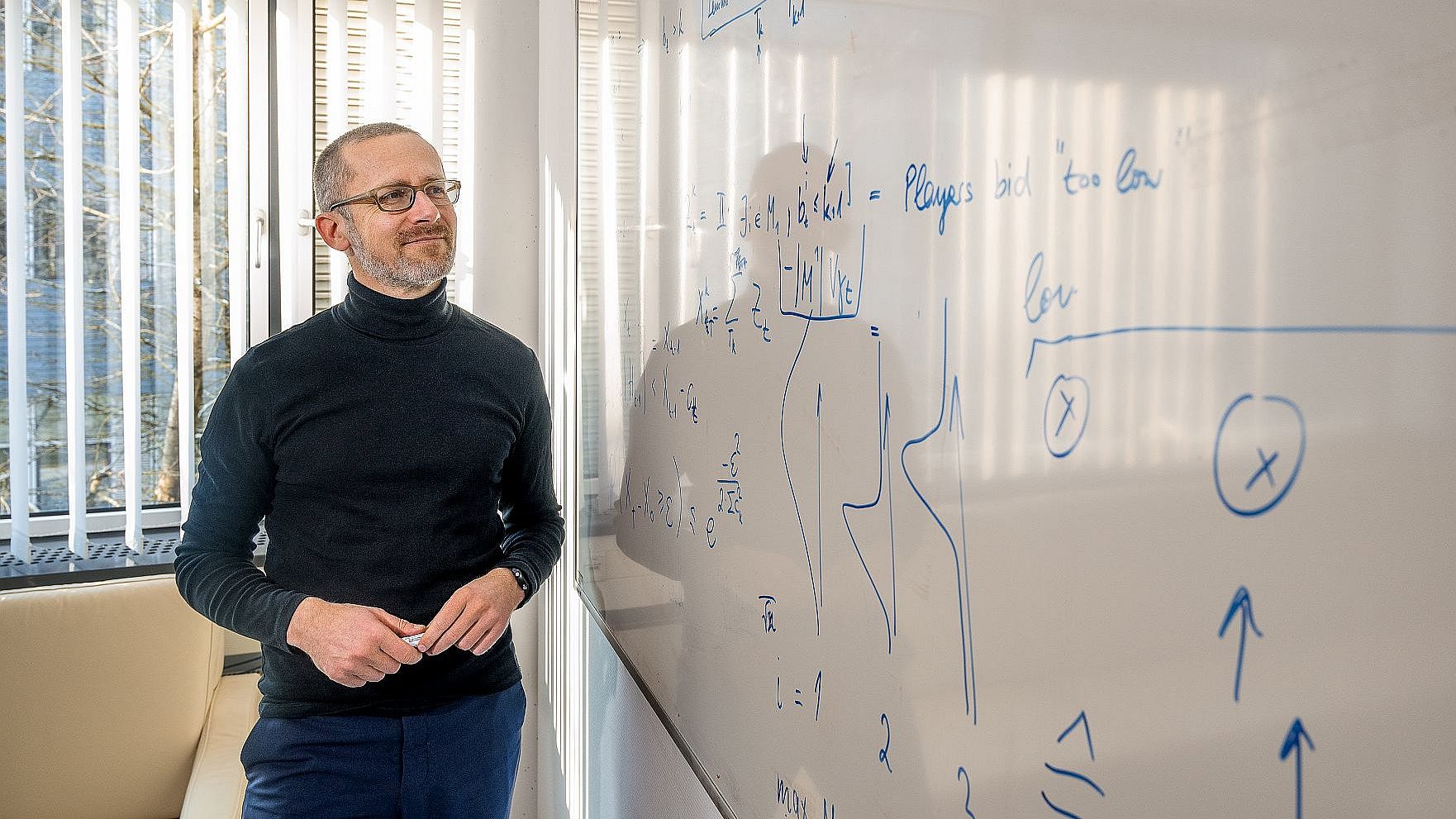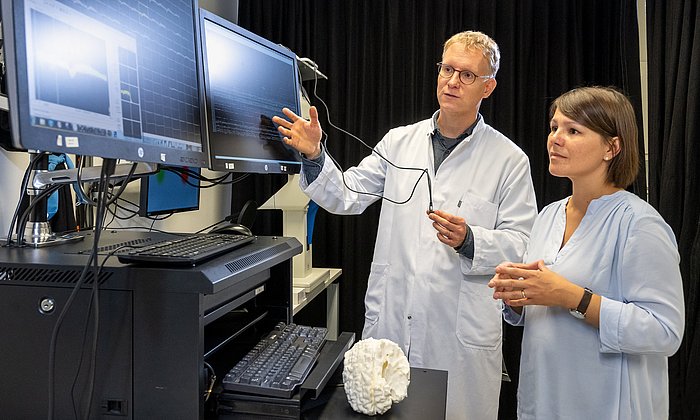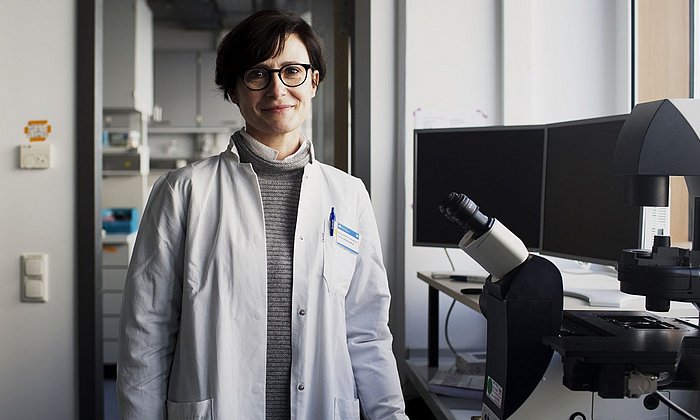European support for outstanding research in computer science, mathematics and medicine
Three TUM researchers awarded ERC Advanced Grants

To date, researchers at TUM have secured a total of 240 ERC Grants, including 46 Advanced Grants. These prestigious awards target established researchers who have achieved significant scientific success over the past ten years. Each grant provides up to €2.5 million in funding.
Prof. Dr. Martin Bichler
Market interaction is increasingly automated by artificial learning agents. Examples include pricing agents in electronic retail or bidding agents in display-advertising auctions. The economic properties of such systems are still poorly understood. In general, learning procedures in game-theoretic problems can exhibit cyclic behavior or even lead to chaotic dynamics. In the ELUD research project, Martin Bichler and his team addresses the question of if and when learning agents converge to an efficient equilibrium and when this is not the case. Based on successful prior work, ELUD will design new algorithms for computing equilibria. Characterizing such learning algorithms in game-theoretic problems under uncertainty requires the development of formal methods at the intersection of computer science, mathematics, and economics.
Martin Bichler is Professor of Decision Sciences and Systems at the TUM School of Computation, Information and Technology (CIT). He is spokesperson of the DFG Research Training Group AdONE, affiliated with the TUM School of Management, and a core member of the Munich Data Science Institute (MDSI). Prof. Bichler was awarded a DFG Reinhart Koselleck project in 2019.
Prof. Dr. Massimo Fornasier
One of the key challenges in computational mathematics is solving nonconvex optimization problems. Although traditional iterative algorithms are central to scientific computing, they are typically confined to finding local optima. In the NEITALG project, Massimo Fornasier's team aims to develop new, efficient algorithms that can reliably find global solutions for nonconvex functions, backed by rigorous mathematical guarantees. These could pave the way for scientific breakthroughs in areas such as the development of new drugs through the optimization of molecular properties and the improvement of materials for solar energy. Another goal of NEITALG is to design interpretable and adaptive algorithms with strong generalization guarantees, contributing to the development of safer and more trustworthy Artificial Intelligence.
Massimo Fornasier is Professor of Applied Numerical Analysis at the TUM School of Computation, Information and Technology. He is also the founder of the TUM Data Innovation Lab and a member of the Board of Directors of the Munich Data Science Institute (MDSI) and the Strategy Board of the Munich Center of Machine Learning. Prof. Fornasier was awarded an ERC Starting Grant in 2012.
Prof. Dr. Thomas Korn
The thymus gland functions like a school for T cells. Here, progenitors to immune cells that could later attack the body’s own tissues are eliminated. Thomas Korn and his team have discovered that B cells, another type of immune cell, play a role in this process. They present autoantigens – molecules that originate from the body itself – to developing T cells. In doing so, they help ensure that any T cells that misidentify these molecules as threats are removed. If this process goes awry, autoimmune diseases can develop – such as neuromyelitis optica, in which the autoantigen AQP4 is mistakenly recognized as a threat. In the research project BREAKING BAD, Thomas Korn and his team aim to investigate these mechanisms in greater detail. In particular, the researchers want to find out whether similar failures might cause T-cells to proliferate, which misclassify the autoantigen amyloid precursor protein (APP) as a threat. This could offer a possible explanation for the development of diseases like Alzheimer’s. If these processes could be influenced, entirely new possibilities might emerge for diagnosis and the development of novel therapies.
Thomas Korn is Professor of Experimental Neuroimmunology at the TUM School of Medicine and Health and a member of the SyNergy Cluster of Excellence. His research has been supported, among others, by an ERC Consolidator Grant.
Technical University of Munich
Corporate Communications Center
- P. Hellmich / J. Rinner
- paul.hellmich@tum.de
- presse@tum.de
- Teamwebsite


